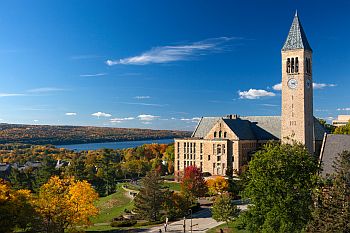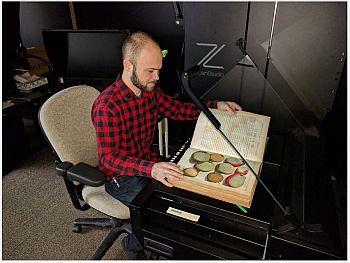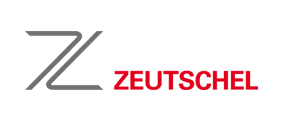June 2018 - Promote scientific research worldwide
Promote scientific research worldwide
History
Cornell University Library dates back to the founding year of the university in 1865, and is based on the collection principles of Andrew Dickson White, who founded the university together with Ezra Cornell and was a lifelong book collector. In his opinion, extensive collections of primary sources are essential for research and teaching.
 |
One of the leading academic research libraries in the United States, Cornell University Library promotes a culture of broad inquiry with its world-class holdings, expert staff, and cutting-edge services. Comprehensive electronic and print resources, including rare and unique manuscripts, support the full range of scholarly endeavor. Connections with partner institutions widen access to specialized material, facilitate international research and learning opportunities, and fuel the pace of innovation. The Library’s commitment to the production, dissemination, and preservation of knowledge drives it to the forefront of digital scholarship and open-access advocacy. Librarians’ expertise in innovative tools and technology equips students to succeed in a digital society, and enhances all facets of teaching and learning at Cornell. |
The Cornell University Library covers a wide range of topics. Their "Rare and Manuscript Collections” is a great source of historic information with more than 500,000 volumes and 70 million manuscripts, photographs, and other artifacts.
Challenge: Access
Central to the work of Cornell University Library is the concept of open access to scientific information. Therefore, the Library sees the digitization of its library holdings as a necessary task, which aligns with its continuing mission to increase access to its vast archives. Responsible for its continued digitization is the Digital Consulting and Production Services (DCAPS) Digital Media”
DCAPS offers digitization support for a wide range of material types, with a focus on rare and often fragile documents and books. Services range from high-end scanning to metadata capture to online delivery.
Challenge: Quality and Efficiency
The open access concept requires our valued service standards, superior image quality, and an exceptional degree of process efficiency.
To meet these requirements, the Digital Media Group uses "state-of-the-art" equipment. The service provider was looking for a new scanning solution to digitize bound documents. "We were satisfied with the existing book scanner, but it showed--during the last projects--its age, and we saw the time had come to replace it with a new device," explains Simon Ingall, Visual Resources Collections Coordinator, Digital Media Group.
This process allowed us to further optimize the quality of the scans with a more efficient, speedier scanning process. "We are aligning our digitization work with the Federal Agencies Digital Guidelines Initiative (FADGI) guideline. We strive for the highest quality level FADGI 4-stars,” reports Simon Ingall.
The Solution
The Digital Media Group has been cooperating with Digital Transitions on their hardware equipment for many years. Digital Transitions supports the programmatic digitization efforts of libraries, archives, and museums with sustainable solutions.
The latest entry in the Digital Transitions portfolio is the Zeutschel ScanStudio. It combines the best of two worlds--the world of studio photography with the world of
professional overhead scanners. The system consists of a camera with a PhaseOne digital back, interchangeable lenses, as well as a special lighting system for both gentle and high-quality digitization of valuable documents. In addition to book cradles for A2 and A1 formats, there is also a transparency unit for the digital capture of films, slides, and glass negatives.
| Image quality and productivity are among the most important features of the product concept. This fulfilled key requirements of the Digital Media Group, which opted for the standard version of the ScanStudio with the A2 book cradle. Important for the decision was also the excellent 'Service and Support' provided by Digital Transitions. "If we had problems with the equipment in the past, we could always count on the support of Digital Transitions. In some cases they helped us to solve a mechanical problem, in other cases they designed a new solution to a technical problem,” emphasizes Simon Ingall. |
 |
First Projects
Currently, the Zeutschel ScanStudio is digitizing a large collection of Pomology books. Pomology is the study of the types and varieties of fruit as well as their determination and systematic classification. The books are from different collections within Cornell Library. The goal is to make them available online in digital form, bringing them together in one place for the first time.
This is happening via the online portal of the Biodiversity Heritage Library (BHL). The BHL is a consortium of natural history and botanical libraries with the aim of digitizing the respective historic holdings on the subject of "biodiversity" and publishing them via an open access information platform. This is a significant scientific task. Because much of the published literature on "biodiversity" is available in only a few selected libraries. These collections are of very high value, because the domain of systematic biology depends, more than any other science, upon historic literature.
The Results
From the project experience, Simon Ingall draws a first interim conclusion of the Zeutschel ScanStudio: "The image quality is incredible and we achieve a very high scanning speed." He saw room for improvement on the software side. The device complies with the FADGI 4-star quality level, but in practice the capture solution only allows the output of 8-bit files. However, because FADGI 4-star requires 16-bit files, Zeutschel’s latest version of their capture software provides 16-bit output.
A major challenge remains since the metadata structuring of books currently still takes place in spreadsheets. In addition, quality control will be made more efficient. "Ideally, we will find a solution that allows us to perform both steps--metadata capture and quality control--in one end-to-end workflow.”
About Digital Transitions
The Digital Transitions Division of Cultural Heritage provides solutions to support the programmatic digitization requirements of libraries, museums, archives, collectors, service bureaus, and other institutions. Our expertise comes from decades of executing preservation and commercial imaging programs, which gives us firsthand knowledge of the stringent requirements and concerns that cultural institutions face when digitizing their large, varied, and often priceless collections. Our guiding principles are conservation-friendly handling, preservation-grade image quality, fast and efficient workflow, and long-term partnerships with our clients. Our solutions are ideal for long-term programmatic digitization where the high-throughput and industrial durability produce a very low per unit digitization cost.
About Zeutschel
With its scanning and microfilm solutions, Zeutschel GmbH has played a key role in the digitisation and digital preservation of valuable and bussiness-critical documents, both in librarianship and archive management as well as in industrial companies and public administration. The company is the world market leader in book scanners and a trendsetter in the field of microfilm cameras and microfilm scanners. The range of software products and accompanying services is extensive and supports libraries and archives in building up digital collections in the internet and in the realisation of digital services. The company founded in 1961, employs 68 members of staff and its products and services are represented in more than 100 countries. All Zeutschel products are "Made in Germany" ⏤ the complete manufacture and entire research and development activities take place at the company's headquarters in Tübingen-Hirschau.
